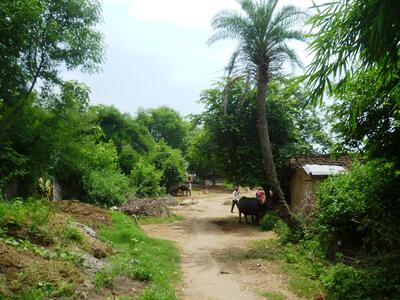Private entities to gain access to state-owned degraded forests for afforestation
by Himanshu Nitnaware
Private entities may soon be granted access to degraded forests in Madhya Pradesh for afforestation projects, with the opportunity to earn carbon credits. A draft policy titled Forest Restoration Using CSR, CER, and Non-Governmental Funds, released by the state’s forest department, reveals that out of Madhya Pradesh’s 9.5 million hectares of forest, 3.7 million hectares are classified as degraded.
The policy aims to involve private players in restoring these lands, citing a lack of government funds to undertake such large-scale ecological restoration. The initiative seeks to enhance green cover, which is crucial for providing ecological services and strengthening forest-based livelihoods for local communities.'
Policy outlines
The afforestation cost is projected to range between Rs 5 lakh and Rs 8 lakh per hectare, depending on factors such as location, land size, soil conditions and climate. Contributions from Corporate Social Responsibility (CSR) and Corporate Environmental Responsibility (CER) funds are encouraged to support the initiative. Industrial groups, corporate entities, individuals and voluntary organisations can participate in forest restoration efforts, selecting degraded forest land ranging from a minimum of 10 hectares to a maximum of 10,000 hectares for a 60-year period.
Under the policy, investors will have the right to carbon credits for the duration of the 60-year agreement, with joint forest management committees (JFMCs) retaining a 10 per cent share in these credits. Investors can choose the species and varieties for plantation, although the use of exotic species is prohibited. However, no land ownership rights will be granted to investors, and the state government will retain ownership of timber derived from the trees.
The policy mandates compliance with existing laws, including the Forest (Conservation) Act, 1980, the Indian Forest Act, 1927, and the Scheduled Tribes and Other Traditional Forest Dwellers (Recognition of Forest Rights) Act, 2006. A tripartite agreement will be signed between the investor, the Madhya Pradesh State Forest Development Corporation (MPSFDC), and the JFMCs, outlining the roles and responsibilities of each stakeholder.
Earning carbon credits
In terms of forest produce, 80 per cent of the yield, including intermediate products, will be divided between the investor and the MPSFDC, while the remaining 20 per cent will go to the JFMCs. The MPSFDC’s share will not fall below 30 per cent, ensuring a distribution ratio of 20 per cent to JFMCs, 30 per cent to the Corporation, and 50 per cent to the investor. The MPSFDC will oversee the extraction of forest produce, with costs shared proportionally. The produce will be auctioned through open tendering, with the investor holding the first right to purchase at the highest bid price.
The draft policy specifies that investors will have the right to carbon or green credits as per Indian government norms.
These credits can be utilised for the duration of the agreement, with JFMCs retaining a 10 per cent stake in the credits.













